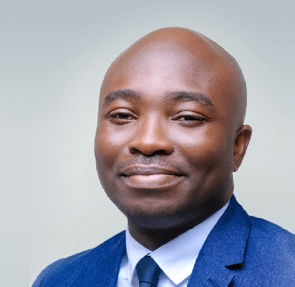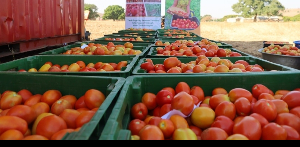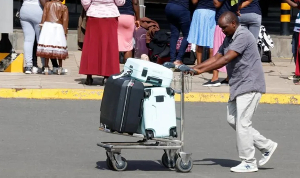The Chief Investment Officer of Axis Pensions Trust, Nana Wiafe Boamah, has said entrusting certain state-owned enterprises (SOEs) into competent hands could foster a vibrant capital market.
He explained that by opening up the ownership of certain SOEs such the Electricity Company of Ghana (ECG) and Ghana National Gas Company (Ghana Gas), among others, for private participation via the stock market, government could not only create a vibrant capital market but also e run institutions efficiently.
“If we are conscious and passionate about helping build a very vibrant capital market, why should government own Ghana Airports, Tema Oil Refinery, Ghana Gas and ECG? Around the 80s and 90s when we were confronted with harsh economic realities in the country, what happened? They privatised all government institutions that were draining the budget. How did they privatise those institutions? Most of found themselves on the stock exchange. If we are committed to building our market, the likes of Ghana Water, ECG should have been privatised into competent hands, not family and friends,” he said.
Mr. Boamah’s concerns are in isolation. For instance, in 2020 about 50 percent of SOEs recorded a total GH¢5.3billion losses in their operations.
Similarly, 10 SOEs operating in the energy space recorded cumulative losses of GH¢9billion within three years. The sector’s SOEs recorded losses of GH¢3.7billion in 2018, GH¢2.9billion in 2019 and GH¢2.5billion in 2020 – with the Electricity Company of Ghana (ECG), Tema Oil Refinery, Valco and Northern Electricity Distribution Company among biggest losers within the period.
With the exception of ECG these SOEs recorded negative profits throughout, according to a report by the Africa Centre for Energy Policy (ACEP).
To reverse this loss-making trend, he advocated a private-public partnerships approach wherein government retains a certain stake in SOEs but relinquishes their management and operation to competent private individuals. He said this could be done by their shares on the stock market – a move he is confident could prove a masterstroke in the country’s bid to cut down losses, promote efficiency and generate revenue to fund development.
Doing so, he added, will create a vibrant capital market and provide investment options to the investing public.
The Ghana Oil Company and GCB Bank are perfect examples of state-owned entities that have floated their shares to remarkable success in recent times.
With private participation long being viewed as the best solution going forward, especially in the face of a current dire economic situation, Mr. Boamah argued against privatisation being considered a risk; instead, describing it as a means to addressing the existing monopoly and inefficiencies within certain SOEs.
He further cited state-owned enterprises including the Ghana Water Company, ECG, Ghana Airports, Tema Oil Refinery, Ghana Gas and others as SOEs which could see a positive change in fortunes if their ownership is transferred to competent private hands.
Mr. Boamah spoke to B&FT on the role insurance, pensions, fund managers and other market players can play to build a robust securities industry, and also emphasised more action and less talk. He highlighted that individuals holding key positions in industry associations are well-informed about best practices, but their failure/inability to implement this knowledge hampers market performance and economic growth.
He stressed the importance of executing strategies and criticised the lack of progress in market integration across the sub-region over the past decade.
Recognising the vital role of a robust securities industry to the economy, he urged key players to prioritise action over mere rhetoric. “For some of us who have been passionate about this market for a very long time, I can say we are in our extra-time or injury-time. If the market does not develop, we will find alternatives elsewhere; and the capital that should have remained in Ghana will go elsewhere simply because we have failed to develop our market”.
Business News of Thursday, 1 June 2023
Source: thebftonline.com













